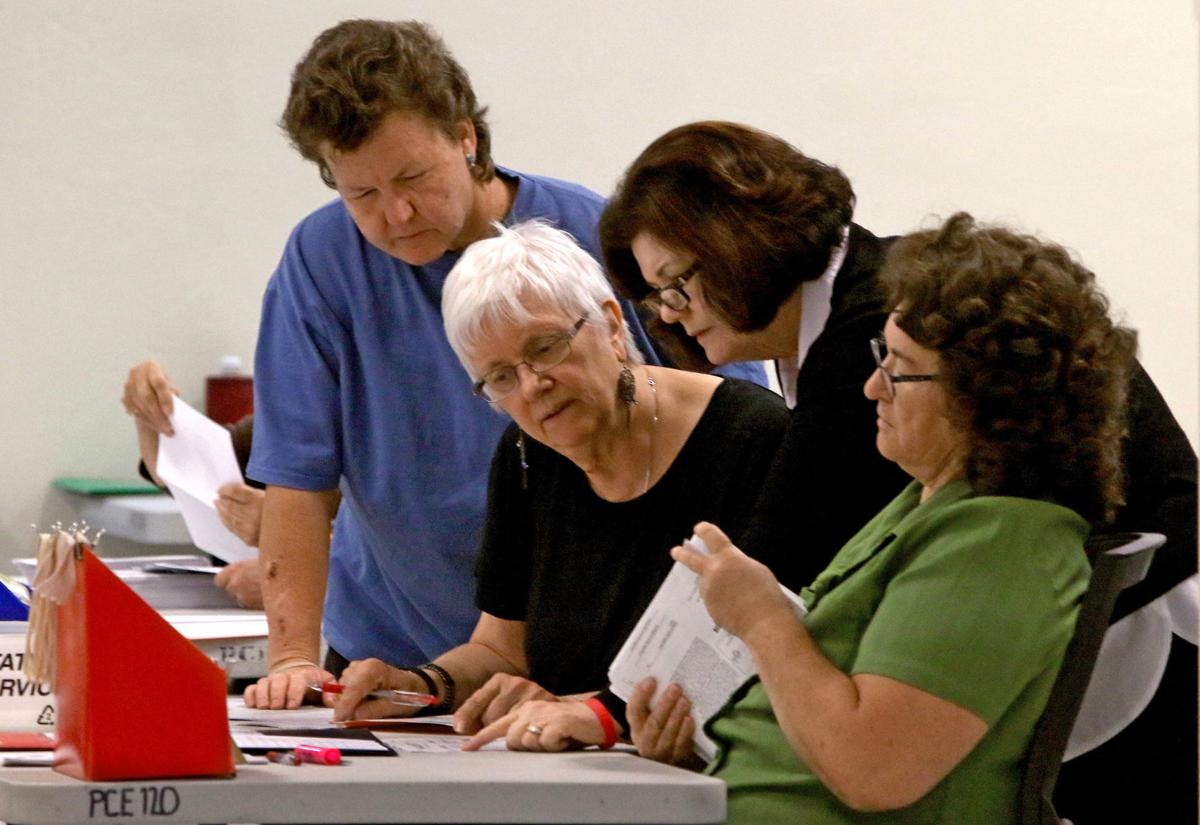Ballot harvesting will remain a crime in ĂŰčÖÖ±˛Ą, at least for this election.
In a brief order Saturday, the U.S. Supreme Court overturned a day-old order of the 9th U.S. Circuit Court of Appeals blocking the state from enforcing the law which makes it a felony to deliver the ballots of anyone else. The justices gave no reason for their decision.
Saturday’s order is not the last word.
The justices sent the case back to the appeals court for full consideration of the question of whether the state law is illegal. That process could take months.
In keeping the law in place, the high court rejected last-minute argument by Democrats that the law, which took effect only three months ago, should be kept on hold in the interim. Democrats argued that the harm to voters in not being able to allow others to take their ballots to polling places outweighs any interests of the state in enforcing the law.
People are also reading…
Instead, the court agreed with attorneys for the state and the ĂŰčÖÖ±˛Ą Republican Party that changing the law just days ahead of Tuesday’s election, would cause unnecessary voter confusion.
The law was approved earlier this year by the Republican-controlled state Legislature amid claims that allowing anyone to deliver anyone else’s ballot creates an opportunity for fraud.
Legislators did agree to create exception for family members, people in the same household and certain caregivers. Anyone else is subject to a penalty of one year in state prison.
Challengers claimed there was no basis for the statute, pointing out that supporters could not cite a single instance of fraud due to the practice.
Both a trial judge and the majority of a three-judge panel of the appellate court acknowledged the point. But they concluded that the state has a legitimate interest in preventing fraud as well as ensuring public confidence in the electoral process.
Both major parties have engaged in various forms of ballot harvesting. The Democrats and their political allies have made a regular practice of going to homes shortly before the election and asking residents if they have forgotten to return their early ballots.
The partisan nature of the legislation was pointed out earlier this year when Secretary of State Michele Reagan spoke at the annual Conservative Political Action conference before the bill was approved.
Reagan decried what she called an “outrageous loophole” law that would make it easy to cheat. Reagan, a Republican, said it is “the radical left who uses ballot harvesting.”
Alexis Tameron, chairwoman of the ĂŰčÖÖ±˛Ą Democratic Party, said she was disappointed by the decision. But she said the party will continue to use other methods of voter outreach.
“Our fight has always been about having more people participate and making the voting process easier for ĂŰčÖÖ±˛Ąns,” she said in a prepared statement.
Robert Graham, her counterpart at the ĂŰčÖÖ±˛Ą Republican Party, was cheered by the ruling.
“Ballot harvesting was banned because it threatened the integrity of our elections,” he said in his statement.
Graham also said the high court “has determined that ĂŰčÖÖ±˛Ą voters are entitled to protections that create honest elections,” even though the justices did not determine whether the law is justified and legal.
In making the case against the law, Democrats were relying largely on the federal Voter Protection Act. It makes it illegal for states to enact election statutes and regulations that disproportionately affect minority communities.
Attorneys for the Democrats produced data showing that cities, towns and reservations with large minority populations are less likely to have home delivery of mail, making it more difficult for residents to return their ballots. The majority of the three-judge appeals panel pointed out there are many Anglo-majority rural communities in the same situation.
Follow Capitol Media Services on Twitter:
@azcapmedia













